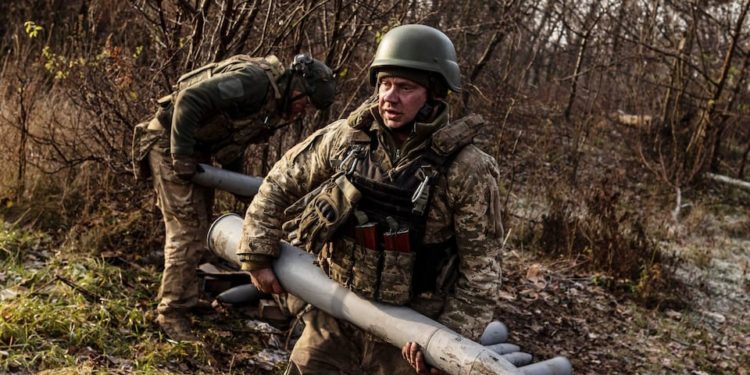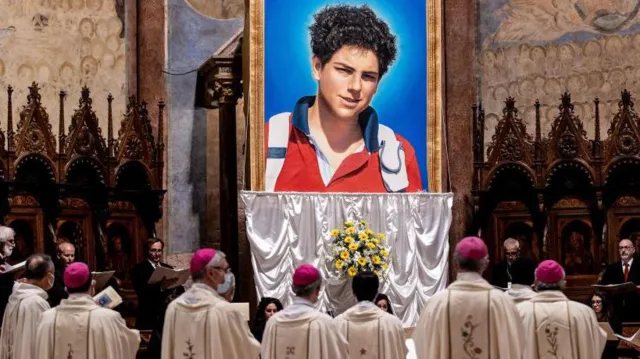THE TELEGRAPH
Ukraine has started releasing prisoners to serve in its army, as part of a scheme to replenish its battle-stricken forces.
A court in the western city of Khmelnytsky said it had freed on parole two men – one born in 2000 and the other in 1981, both convicted of theft – to join the country’s national guard.
“The court granted their petitions and ordered the Khmelnytsky Detention Centre to release the men from their sentences on parole for contracted military service immediately,” it said in a statement.
“Each of the men is fit for military service on health grounds, has passed a professional and psychological selection, and has a sufficient level of physical fitness.”
The Khmelnytsky City district court said it was considering 50 other submissions for early release for convicts wanting to serve in the armed forces.
The scheme was signed into law by Volodymyr Zelensky, Ukraine’s president, last week as his country grapples with a mounting manpower crisis.
With the war against Russia in its third year, Kyiv has struggled to find volunteers to replace injured and killed servicemen. Many of the most battle-hardened units have fought on the front lines for two years without a break.
Ukrainian officials believe the new measure could free up to 20,000 prisoners to be mobilised.
Russia has pardoned tens of thousands of convicts, including rapists and murderers, to help bolster its forces in Ukraine – a move for which Kyiv has largely mocked Moscow.
The new law will enable Kyiv to partially follow suit, with much stricter criteria than in Russia. Only Ukrainian prisoners with less than three years left of their sentence will be allowed to apply to be mobilised to special units in the armed forces.
Politicians insist that anyone convicted of murder, rape or other serious offences will be blocked from service, as will former high-ranking officials found guilty of corruption.
Courts to have final say on releases
Convicts with infectious disease including HIV, tuberculosis or hepatitis have been excluded from the mobilisation project and the courts will have the final say on whether prisoners are released.
Upon release, paroled soldiers will be placed under strict supervision and banned from any travel away from their military units without their commander’s consent. This effectively means the men will remain mobilised until the end of the conflict.
Anyone caught evading their parole terms could be sentenced to an additional 10 years imprisonment on top of their remaining sentence.
Despite initial predictions of mass mobilisation, Kyiv said only 3,000 inmates had applied to join the military since the law was enacted.
The legislation comes alongside other efforts by the Ukrainian government to find new recruits. These include a law lowering the draft age from 27 to 25, more rigorous controls to catch draft dodgers and the suspension of consular services for military-aged men living overseas.
The post Ukraine starts sending convicts to fight Russia appeared first on The Telegraph.



